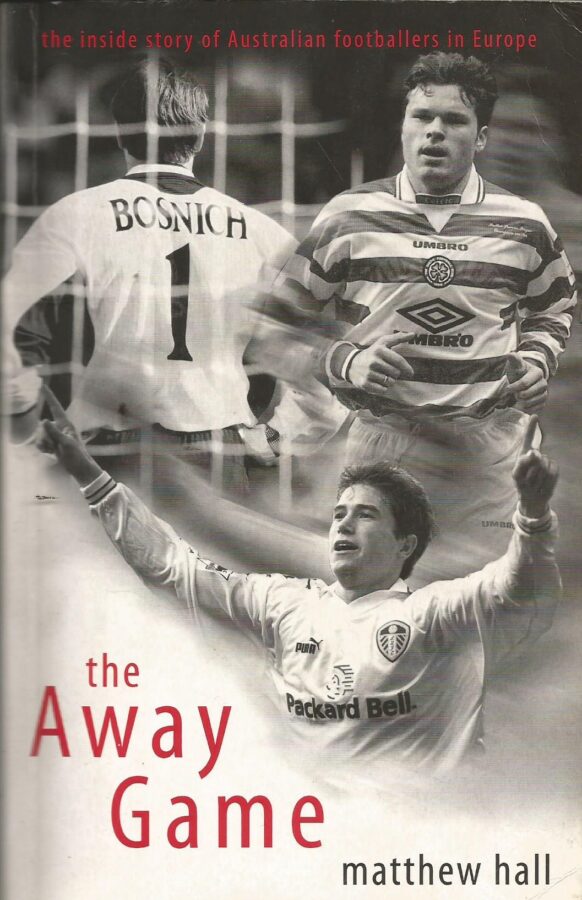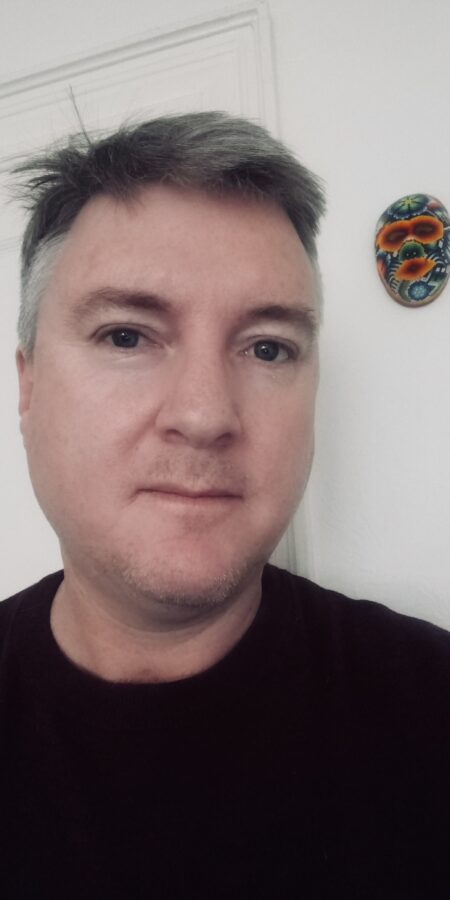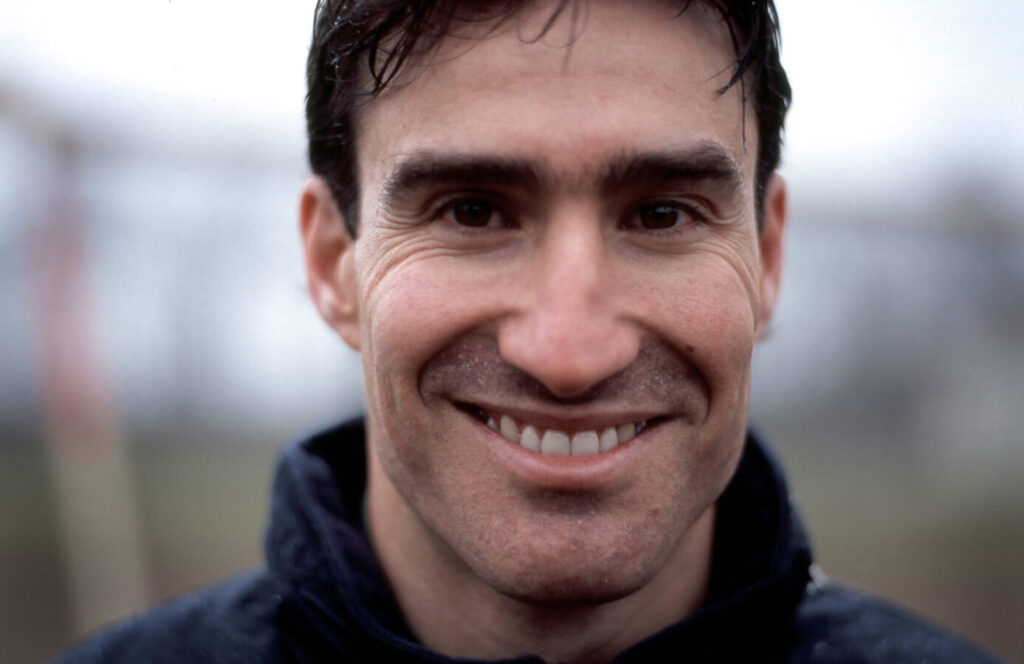
Following the ‘reawakening’ of The Away Game: The Secret Lives of Australia’s Soccer Superstars, author Matthew Hall chats with pfa.net.au about his book’s longevity and the launch of its accompanying documentary of the same name.
The Away Game is a collection of probing, revealing and often controversial stories that lifts the lid on football’s mysterious world of players, administrators, agents, coaches and promoters, and Australia’s place in it. First published in 2000, it received rave reviews and is regarded as a benchmark in sports writing. Now, football aficionados can experience a ‘reawakening’ of Hall’s book through a new version online and via a free documentary on YouTube.

Can you tell us a little about your book, the Away Game?
The first version of The Away Game was published in 2000. It told the stories of players who had left Australia to play overseas – from Joe Marston in the 1950s to the Golden Generation in the 1990s and early 2000s as well as player who were with clubs in lower leagues or who were struggling to make it at the top. There were very few books about Australian soccer when it was first published and this documented important and unique stories that had to be told. An updated version was published in 2006 – in time for the World Cup – and it has recently been made available again as an updated ebook and print version at www.theawaygame.net
What motivated you to write the book?
This was another world in Australian football. There was little mainstream media interest in the sport – either locally or with the guys playing overseas. I knew there were amazing stories to be told. The idea of young players – many still teenagers – following a dream to play in the top leagues overseas was very compelling. Meeting the players and hearing their stories proved that my hunch was true.

What was your inspiration for the book and why were you interested in this particular topic about Australia’s contribution to the global game?
Australian footballers are unique in that they have opportunities to play all over the world. Some follow that path out of necessity, some follow a dream, some because they have such incredible talent that they are at home at the top level of their profession with some of the world’s biggest clubs. I can’t emphasise enough the Golden Generation of the early 2000s and how so many Australian players were making names for themselves in Europe. Every coach in the UK or Europe spoke highly of Australian players – for their professionalism, their ambition, and their drive. The success in 2006 is directly tied to all of that.
How did you approach research for the book and interviewing those key figures involved?
The key part of the book was tracking down players at their clubs and seeing and hearing first hand what they were experiencing. I racked up a lot of miles criss-crossing Europe on trains for about a year. I saw Mark Viduka play for Dinamo Zagreb in Glasgow against Celtic and six months later walked through central Glasgow with him and saw how he had quickly become a local hero – at least to half the city. I met up with Paul Okon in Rome when he was at Lazio and watched a training session at 1860 Munich with Ned Zelic and Paul Agostino which had an intensity unlike anything I’d ever seen before. Many players welcomed me into their homes – which was very trusting. I spent time with Harry Kewell in Leeds, Liverpool, Manchester, Istanbul, Buenos Aires, and Montevideo. He would call me his “therapist”. I was always interested in detail – rather than just getting a quick quote for a newspaper story.

Describe the process of writing the book? How long did it take, where did you do most of your work and writing from?
I wrote Robbie Slater’s biography The Hard Way – which told the story of his career in Australia, Belgium, France, and England – on the kitchen table of his apartment in Lens in France. Once that was done, I moved straight on to The Away Game. Once the interviews were done, the most difficult part was transcribing tapes. The book was written on trains across Europe and in an apartment in North Bondi in Sydney.
What can people learn, in particular, about Australia’s involvement in the global game of football, through The Away Game?
Australian football really punched above its weight for many, many, years. There are complex reasons why we haven’t developed players to the same level since and seen that success mirrored with national teams but an important thing to do is learn from our history. Knowing what players experienced – from Joe Marston to Harry Kewell – is so important. The Away Game can be an inspiring and educational tool for younger players, too. It’s important for them to know about who came before them and what they had to go through to make it to the top – or even not make it to the top.
You interviewed many important players, historically within the game and also in the contemporary game. What were some of the more memorable anecdotes and stories that the players shared with you?
Every player had many stories – some which defined their careers and some that were adventures along the way. Andy Bernal being chased by police in Spain because they thought he needed to sign up for national service comes to mind; seeing Bruce Springsteen in London with Steve Horvat was a different insight into professional football; seeing John Aloisi play at the Nou Camp and thinking it was a long way from Adelaide; similar with Paul Okon at the Stadio Olimpico in Rome; and driving – speeding – around Glasgow in Mark Viduka’s Mercedes was an experience.
What are you hoping the re-awakening of the book achieves?
The Book was called “the best account of Aussie soccer ever written” by SEN Radio and another review claimed it “raised the bar on how soccer is written about”. I don’t know if that is all true but it was a pretty good achievement if it’s halfway true. The book was also made into a film – narrated by Anthony LaPaglia – that picked up a few awards around the world. It’s finally been made available online and for free at www.theawaygame.net.
What is next for you?
I have a new book out in March, 2019, called If I Started To Cry, I Wouldn’t Stop. It’s a collection of interviews and stories about Australian soccer from about 1996 to today. It gives an insight into what was happening in Australia during that time and some more insight into the lives of some players. There are a few more “therapy” sessions with Harry Kewell in the new book, too. It’s published by Fair Play Publishing. The 1990s and 2000s were an incredible era – when people like Brendan Schwab was battling to establish the union and players, especially in the NSL, were often considered cannon fodder by clubs. Coaches, too, had a precarious existence. I recall spending an entire afternoon with Alex Tobin in Parramatta and he was telling me unbelievable stories about how players were treated. The problem was – the stories were all true.
I currently live in the United States but am honoured to have been invited to speak at the Football Writers Festival on March 23 and 24 in Jamberoo, NSW. That’s an event co-hosted by the Johnny Warren Football Foundation. It’s fantastic that there is now something like this – not so long ago it would have been impossible to even contemplate. It was such a battle to get a mainstream publisher interested in The Away Game. People should not underestimate how much football is now ingrained in our culture. It wasn’t always like this and these types of events should be supported as much as possible.
The Away Game book and movie are available free online: www.theawaygame.net
If I started to Cry, I Wouldn’t Stop:https://www.fairplaypublishing.com.au/product-page/if-i-started-to-cry-i-wouldn-t-stop
Image credit: Lachlan Milne/The Away Game.







